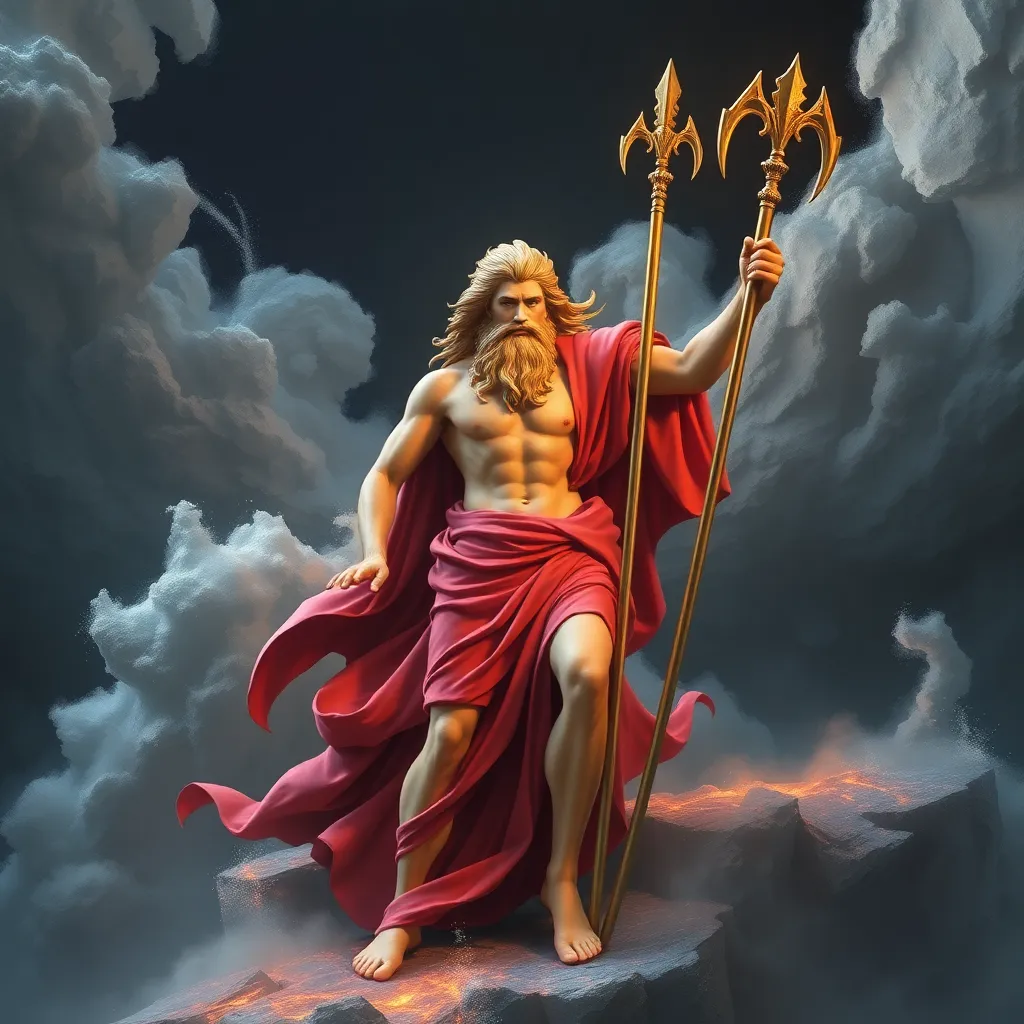The Iliad’s Representation of the Power of Words
I. Introduction
Homer’s “The Iliad,” composed in the 8th century BCE, stands as one of the cornerstones of Western literature. This epic poem recounts the events of the Trojan War, focusing on the hero Achilles and the themes of honor, glory, and the human condition. Its significance extends beyond its narrative; it embodies the profound influence of words in shaping identities and destinies.
In this article, we will explore how language in “The Iliad” shapes identity, influences fate, and drives the narrative. Through the lens of rhetoric, prophecy, and dialogue, we will uncover the layers of meaning behind the characters’ spoken words and their implications for the story.
II. The Role of Speech in Heroism
Heroism in “The Iliad” is intricately tied to the power of speech. A hero is not only defined by their martial prowess but also by their ability to articulate their thoughts and feelings. The great warriors Achilles and Hector exemplify this duality through their speeches.
- Achilles: His speeches often reflect his internal struggles and motivations, revealing his deep sense of honor and wrath.
- Hector: As a defender of Troy, Hector’s words are filled with a sense of duty and love for his family, showcasing a different aspect of heroism.
Through their eloquent rhetoric, these characters shape the perception of heroism among their peers and within the narrative itself. The impact of their words resonates throughout the epic, influencing their fates and those around them.
III. Words as Weapons: The Power of Insult and Praise
In “The Iliad,” words serve as both weapons and shields. Insults can provoke fierce responses, while praise can uplift and inspire characters to greater deeds.
Examples of Insults and Their Consequences
Insults often lead to significant repercussions in the narrative:
- The quarrel between Achilles and Agamemnon begins with a personal insult, leading to Achilles’ withdrawal from battle.
- Hector’s taunts against the Achaeans serve to rally his own troops but also escalate the conflict.
The Transformative Power of Praise
Praise, on the other hand, can motivate characters to act heroically:
- Achilles is often spurred into action by the admiration of his peers.
- Hector’s recognition of his role as a protector drives him to confront Achilles, demonstrating how words can embolden individuals.
This duality of words as constructive and destructive forces shapes the narrative and the characters’ journeys throughout the epic.
IV. The Influence of Prophecy and Divine Speech
The gods in “The Iliad” wield immense power, often communicating their will through prophecy and divine speeches. These utterances shape human fate and highlight the relationship between mortals and the divine.
The Role of the Gods
The gods intervene in human affairs, often providing foresight or warnings:
- Achilles receives prophecies about his fate, influencing his decisions and actions.
- Hector’s warnings to his fellow Trojans stem from divine messages, showcasing the intersection of human agency and divine communication.
The implications of these prophetic speeches extend beyond the immediate narrative, prompting characters to reflect on their roles and destinies.
V. The Function of Dialogue in Conflict Resolution
Dialogue plays a crucial role in both escalating and resolving conflicts within “The Iliad.” Key conversations often determine the course of events.
Examining Key Dialogues
Several dialogues serve as turning points in the epic:
- The negotiation between Achilles and Agamemnon showcases how dialogue can lead to both conflict and potential resolution.
- The conversations between Hector and his family highlight the personal stakes of the war, emphasizing the human cost behind the conflict.
These instances illustrate the significance of negotiation and persuasion in the relationships between characters and the unfolding narrative.
VI. The Poetic Form and Its Impact on Meaning
The poetic structure of “The Iliad” enhances its themes of communication. The use of meter and poetic devices conveys deep emotions and resonates with the audience.
The Use of Meter and Poetic Devices
Homer’s use of dactylic hexameter elevates the spoken word, imbuing it with rhythm and musicality that enhances its impact:
- Similes and metaphors enrich the narrative, providing vivid imagery that complements the spoken words.
- Repetition of phrases serves to emphasize key themes and emotions, reinforcing the power of language.
The oral tradition of storytelling further amplifies this power, as the spoken word is imbued with life and immediacy in performances.
VII. The Legacy of Words: Memory and Storytelling
The legacy of “The Iliad” extends beyond its narrative; it serves as a testament to the power of oral storytelling in preserving history and culture.
The Importance of Oral Storytelling
Through their reflections, characters contemplate the nature of memory and legacy:
- Achilles grapples with the idea of everlasting glory versus a long life, emphasizing the weight of words in shaping legacy.
- Hector’s desire to be remembered as a hero drives his actions, illustrating how storytelling influences identity.
Ultimately, “The Iliad” itself is a powerful narrative that preserves the stories of its characters, showcasing the enduring impact of language and storytelling in human culture.
VIII. Conclusion
In conclusion, “The Iliad” illustrates the profound power of words in shaping identity, influencing fate, and driving the narrative. Through speeches, insults, praise, prophecy, and dialogue, Homer weaves a rich tapestry that highlights the complexity of communication.
As we reflect on the themes of language and power presented in “The Iliad,” we recognize their relevance in contemporary discussions of communication and authority. The enduring impact of this epic poem continues to inform our understanding of the power of words in shaping human experiences and relationships.




